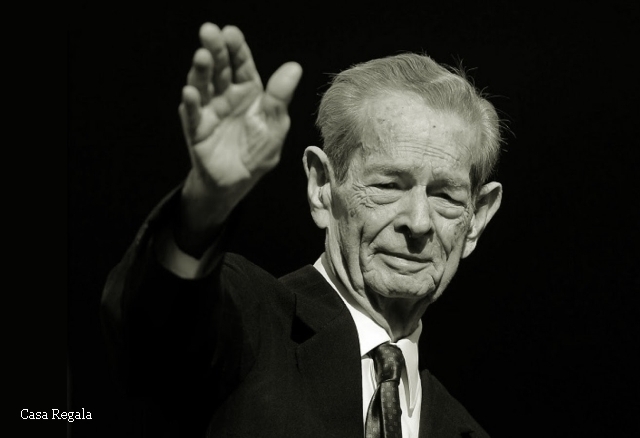One year since the death of King Mihai
It has been a year since the death of the last sovereign of Romania, King Mihai I.

Bogdan Matei, 05.12.2018, 13:44
Romanians at home, in the Romanian historical communities around the present borders or in the Diaspora, are commemorating their last sovereign, King Mihai I. He died aged 96 at his residence in Switzerland on December 5, 2017. His biography overlaps Romania’s recent history, which was equally heroic and tragic. In 2017 King Mihai I was the last head of state who had experienced World War II. He was also the last of the four sovereigns of the Hohenzollern-Sigmaringen German dynasty that ascended the throne in Bucharest in 1866, building modern Romania.
Born on October 25, 1921, Mihai reigned for the first time but only formally, over 1927-1930, when, after the death of his grandfather, King Ferdinand the Unifier, the country was ruled de facto by a regency council, as he was still a minor. Actually, he became a real king in 1940 after his father, the unpopular Carol II, had stepped down. The latter had instituted a corrupt and bloody royal dictatorship and had ceded a large part of the territories that had come under the authority of Romania at the end of World War I: Bessarabia, northern Bukovina, northern Transylvania and southern Dobrudja.
Considered immature and not prepared to reign, Mihai remained in the shadow of the pro-German marshal Ion Antonescu for a long time. But, on August 23, 1944 when the Red Army had already entered Romania and was threatening to raze Bucharest to the ground, with an incredible courage, King Mihai decided to have the marshal arrested and declared the country’s alliance with the anti-Nazi Allies.
Historians are almost unanimous in saying that his decision shortened the war in Europe by half a year and saved hundreds of thousands of lives. Three years later, when the country was practically under Soviet military occupation, being ruled by a puppet communist government, the King was forced to step down and go into exile in the West. He backed the actions of the Romanian National Committee, presented as a government in exile, though the Western democracies never recognized its status.
Until the anticommunist revolution of 1989, he was permanently supervised by the Securitate, the political police of the communist regime in Bucharest. The King could only come back home in 1997, when his Romanian citizenship was restored, citizenship that had been withdrawn by the communists. Several confiscated properties were returned to his family. As special ambassador, in Western countries, King Mihai I lobbied for Romania’s NATO and EU accession in 2004 and 2007 respectively.
His eldest daughter, Margareta, is now the Custodian of the Crown of Romania thus claiming the headship of the Royal House of Romania. “I don’t regard Romania today as a legacy from our parents, but as a country we borrowed from our children” — the last king of Romania said in a statement considered his real will.






























